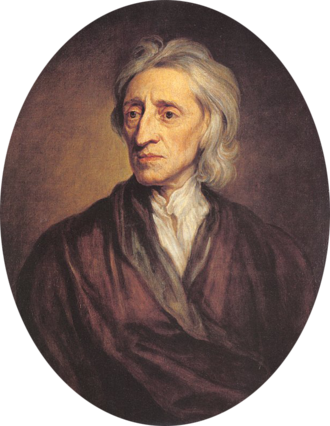Classical Liberalism has Won the Debate

["Portrait of Locke in 1697," by Godfrey Kneller, taken from Wikipedia; this image is in the public domain.]
The fundamental correctness of Classical Liberalism; the idea that the individual man has inalienable rights that cannot be deprived by society or the state, and that these are life, liberty, and property rights, is no longer a matter of debate in honest intellectual circles. Where you see it being challenged, it is always by means of stealth, obfuscation, lies, personal attack, appeal to authority, appeal to emotion, or by appeal to an exception, and never by a genuinely rational objection the principle itself. Why is this? I would argue that this is because the very essence of conscious existence itself requires the basic tenets of Classical Liberalism to be true, and one cannot engage in rational debate without first being personally conscious.
What does it mean to be conscious? Ayn Rand and Sigmund Freud argue (and I agree) that consciousness is connected to the ego. It is at the point at which mental activity rises past the threshold of encountering one's sense of self that unconscious association is translated into rational thought. This is because rational thought is organized around a cohesive interpretation of experience, and that requires an awareness that one is in a state of experiencing things. But in order to be aware that one is experiencing things, one has to be aware that one exists. As soon as one is aware that one exists, the presence of the ego cannot be denied, because one cannot identify oneself as a subject of experience unless one first identifies that the self, i.e., the ego, exists. Therefore, it is only after the fact that we can say conclusively that the ego exists that we can then inquire as to whether or not we are exercising conscious thought.
Having acknowledged that the ego exists, how do we then proceed to consciousness? Very simply: consciousness only deals with the reality it structures out of sense data, and the only way in which we are able to select relevant sense data from the Kantian manifold of experience is by attributing exceptional meaning to certain inputs over others. Meaning is always self-reflective. That means: consciousness is a self-reflective exercise, in which we interpret the world on the basis of what seems important to our selves - i.e., our ego.
Having, up to this point, arrived at the conclusion that rationality, being dependent on consciousness, which, in turn, is dependent on the existence of the ego, can therefore only be possible if we take the existence of the ego as a given for anyone exercising it, the next question to ask is: what is the connection between the ego and Classical Liberalism? That is very simply this: the mature, rational ego has the ability to exercise responsibility (see Rights and Responsibilities as Inalienable Aspects of Consciousness for more on this).
When a being has the ability to exercise responsibility, it greatly resents any outside force imposing its will upon them - and rightly so (see Criminality with Respect to the State for more on this). The capacity to exercise responsibility in relation to one's self translates into a fundamental right to enjoy the freedom to do so, accepting the benefits and foibles of the same. Everyone, on some level, realizes this, even if they refuse to acknowledge it. Everyone knows that they strongly prefer to be able to pursue the courses of action that they think are the best for themselves, and they rightly resent anyone who attempts to interfere with that. It is therefore revealing of a hypocritical desire to control others that lies at the root of any fundamental objection to the Classical Liberal ideal. Any principled stance against Classical Liberalism must necessarily entail a complete abdication of one's own right to make choices about one's own life. Any remonstration that some choices are allowable while others are not - other than according to a dialectic that invokes the non-aggression principle, which simply remarks upon the natural boundaries of the respective selves of social beings - simply changes the point at which they feel justified in violating the responsibility of others in favor of their own judgment; which, in the end simply shifts the point at which hypocrisy is being exercised from an issue of principle to an issue of practice. This hypocrisy cannot be admitted in rational debate, and it is for this reason that, in any truly informed, rational debate, the principles of Classical Liberalism are not subject to debate.